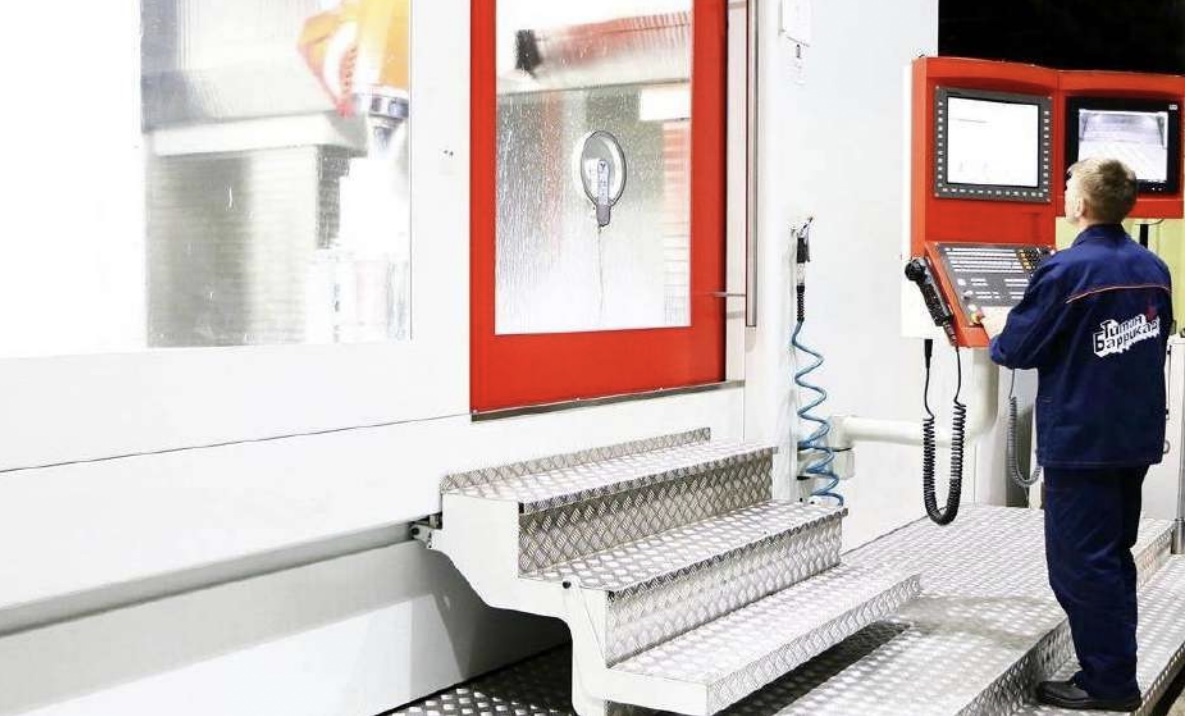We are releasing our investigation on Roscosmos, covering a nearly exhaustive sample of Russian ICBM producing plants. We have investigated both primary ICBM/SLBM producers in Russia, a major producer of launchers, manufacturers of parts and components.

https://x.com/rhodusinc/status/1827398892570472848

We have five OSINT materials, one per each plant. To access our materials, you can either:
a) Click on a respective plant in the diagram
b) Choose it from the list below it
Follow the link: rhodus.com/roscosmos

a) Click on a respective plant in the diagram
b) Choose it from the list below it
Follow the link: rhodus.com/roscosmos

Each material includes an eclectic collection of sources, ranging from the TV propaganda to public tenders, and from the HR listings to academic dissertations. Combined altogether, they provide a holistic picture of Russian ICBM production base that no single type of source can. 

If traditional intelligence worked with the deficit of information, modern one must work with its hyper abundance. Our collection aims to introduce the media, academia and strategic community into the hyper abundance, depth and variety of sources on the seemingly impenetrable. 

It is two companies within Roscosmos that are primarily responsible for the missile production. The Moscow Institute of Thermal Technology (MITT) makes solid-propellant missiles, Makeyev Design Bureau – liquid propellant ones.
Of these two, the MITT is a far richer company.
Of these two, the MITT is a far richer company.

We investigated five Roscosmos plants:
1. Votkinsk Plant is one of two key intercontinental ballistic missiles producers in Russia. It is the sole manufacturer of solid-propellant missiles, such as ICBMs Topol-M and Yars, SLBM Bulava as well as missiles for the SRBM Iskander.
1. Votkinsk Plant is one of two key intercontinental ballistic missiles producers in Russia. It is the sole manufacturer of solid-propellant missiles, such as ICBMs Topol-M and Yars, SLBM Bulava as well as missiles for the SRBM Iskander.

Votkinsk has automated an unusually wide variety of its production processes, implementing the fully integrated turnkey solutions in forging (Danieli Breda 🇮🇹) and in precision casting (Shell-o-Matic 🇨🇦). In terms of machining, however, it tends to be relatively frugal.
The Votkinsk Plant machining park consists of a mix of:
a) Modern Western equipment
b) Soviet machines upgraded with modern CNC controllers & servo drives (= "modernization" in the Russian manufacturing terminology)
a) Modern Western equipment
b) Soviet machines upgraded with modern CNC controllers & servo drives (= "modernization" in the Russian manufacturing terminology)

2. Titan-Barriady is a major producer of launchers, control equipment and electronics for the SRBM “Iskander”, ICBMs “Topol”, “Yars”, and SLBM “Bulava”. Like the Votkinsk Plant, it is also a part of the much richer MITT holding (= solid-propellant missiles).

Titan-Barrikady is a heavily-lopsided enterprise that heavily prioritizes CNC machining. It has more of the modern, sophisticated CNC machinery by the leading Western European and American producers compared to any other plant in this sample.
It's a machining-oriented plant.
It's a machining-oriented plant.

As we finished with the MITT (solid propellant), we now go to the Makeyev (liquid propellant). It is much poorer, with more archaic & often physically worn out machinery. Its actually missile production is largely concentrated within the single plant - Krasnoyarsk Plant.
3. Krasnoyarsk Plant is one of two principal ICBM producers in Russia. It is the leading manufacturer of liquid-propellant missiles such as the ICBM Sarmat and SLBM Sineva. It is the most important and best funded enterprise of the (relatively poor) Makeyev company.

It operates with a mix of Soviet stock, mid-tier modern imports (🇨🇿 Czech, mostly), and a few ad hoc machines assembled from the Western European parts. Overall, its park tends to be of lower tier compared with the MITT plants, yet by far the best within the Makeyev structure. 

4. Zlatoust Plant is a relatively neglected facility making parts and components for the liquid propellant ballistic missiles (Sineva, Sarmat). It is an example of what a competent management can do with a chronically underfunded military plant.

It will largely switch to the production of civilian goods, household appliances and, most importantly, aluminium extrusion. The competent industrial management kept this plant alive, even when totally neglected by state.
5. Miass Plant is a liquid propellant SLBM producer of secondary importance. A lower priority enterprise of the poorer Makeyev hollding, Miass has faced severe financial constraints. Like Zlatmash, it tried selling to the civilian market, but with considerably less success.

Miass business model included selling the oil storage equipment, brewery machinery, LED lamps and the electricity from its power plant. Overall, it is a military purpose plant which struggled with adapting to the post-Soviet market realities and has very much degraded. 

Some takeaways:
a) The Russian ICBM production base is a mix of modern Western equipment & remnants of Soviet machinery
b) There is almost nothing "Russian" out there
c) And, more interestingly, almost nothing Chinese
This suggests the policy of Chinese exclusion, pre-2022
a) The Russian ICBM production base is a mix of modern Western equipment & remnants of Soviet machinery
b) There is almost nothing "Russian" out there
c) And, more interestingly, almost nothing Chinese
This suggests the policy of Chinese exclusion, pre-2022

Our work depends upon your financial contributions. To contribute, you can:
a) Card Payment ()
b) PayPal donations@rhodus.com
c) BTC: bc1qssdxjeazytnqds0s92lsh2nm4t7zq6594q3eyz
d) ETH: 0xA9FA4454cC3EC0Ff521926BB5F8D4389bA0e665a rhodus.com/donations

a) Card Payment ()
b) PayPal donations@rhodus.com
c) BTC: bc1qssdxjeazytnqds0s92lsh2nm4t7zq6594q3eyz
d) ETH: 0xA9FA4454cC3EC0Ff521926BB5F8D4389bA0e665a rhodus.com/donations

This collection of sources serves as a technical appendix to our report How Does Russia Make Missiles? On our research methodology see pp. 33-44, on our conclusions pp. 45-46 of the cited report.
cdn.prod.website-files.com/65ca3387040186…
cdn.prod.website-files.com/65ca3387040186…
• • •
Missing some Tweet in this thread? You can try to
force a refresh





